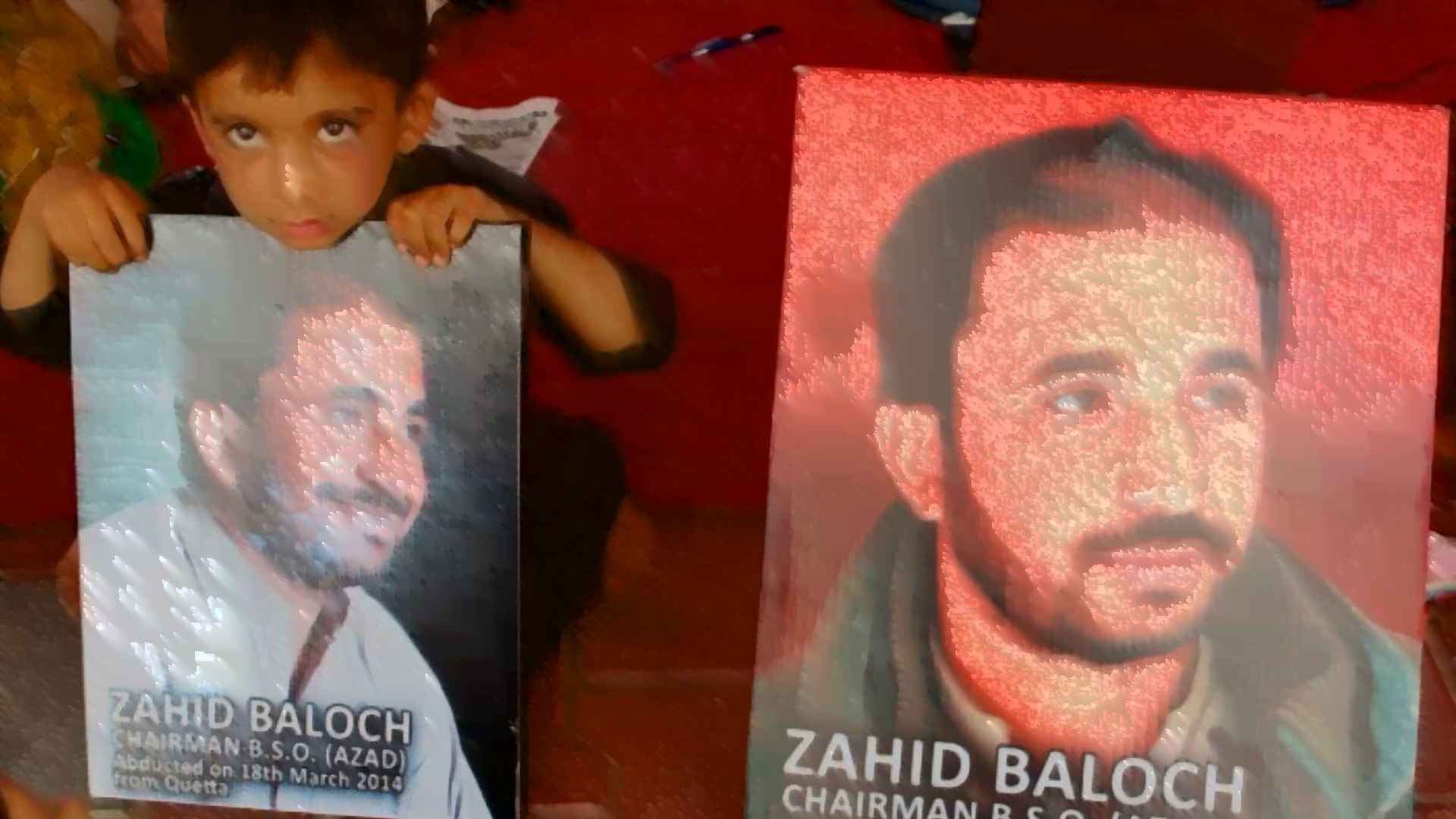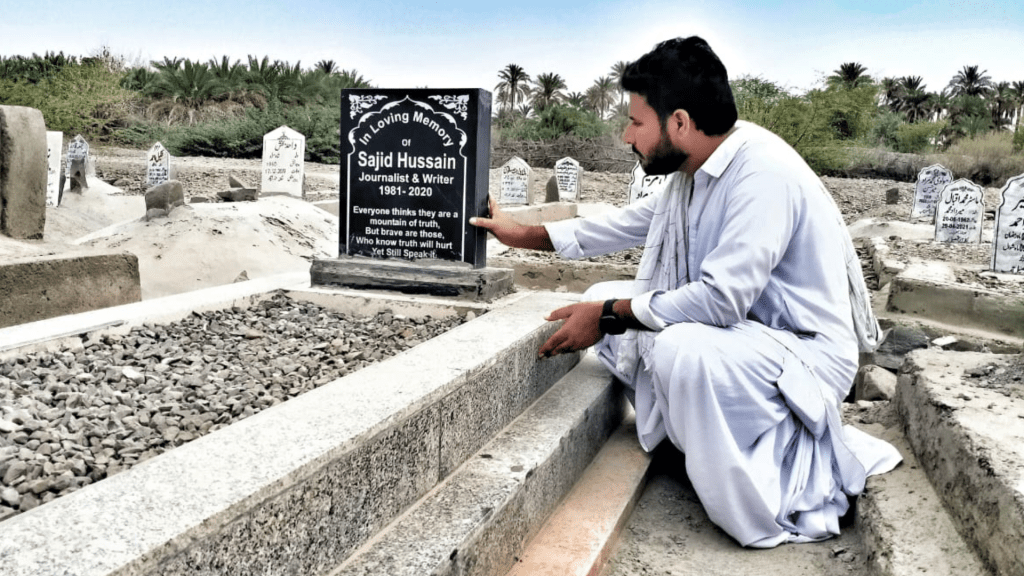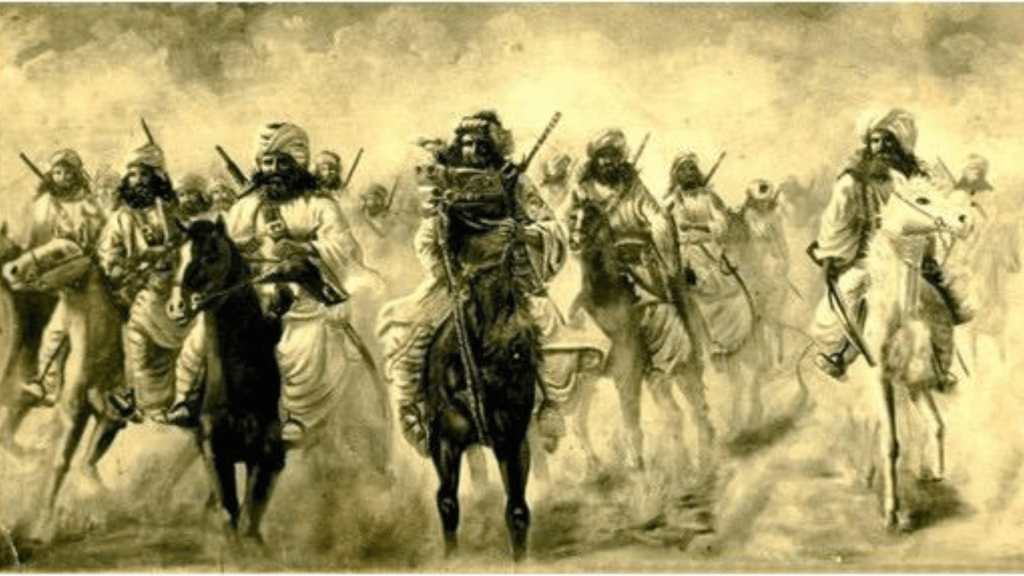It has been eight years since Zahid Baloch was abducted by Pakistan’s secret agencies on March 18, 2014, from Quetta. Zahid Baloch was abducted along with Assad Baloch, a student and resident of Tump, in the presence of Banuk Karima Baloch and other eyewitnesses. He was the chairman of Baloch Students Organization-Azad, the largest and most organized student organization in Balochistan.
BSO-Azad is a peaceful political and democratic student organization that was later banned by the state. Several of its central and zonal leaders were forcibly disappeared by the army and its secret agencies. The mutilated bodies of some of them have been thrown away, and this targeting of Baloch students continues to this day.
Prominent leader Banuk Karima Baloch faced the wrath of Pakistan’s powerful agencies because, apart from being an iconic personality, she was also an eyewitness in the case of the disappearance of Zahid Baloch. She followed Zahid Baloch’s case and in this regard, she worked with Baloch political and human rights organizations.
Zahid Baloch started his political career in 2003 from the platform of BSO-Pajjar. He also became the president of its Karachi zone in 2005. When the Central National Council session was held in Quetta, Zahid Baloch was elected a member of the Central Committee of the BSO by an overwhelming majority.
Zahid Baloch is a very sincere and dedicated political activist. In November 2008, at the Central National Council Session of BSO-Azad, held at Balochistan University Quetta, Zahid Baloch was elected unopposed as the Secretary General of the organization. He was also instrumental in organizing the BSO in Karachi and other areas of Balochistan. It was a time when Baloch students who studied at educational institutions in Karachi, Lahore, Islamabad and other major cities joined BSO-Azad in large numbers. BSO is like an educational institution for independent Baloch students and a sort of parent organization of the contemporary Baloch movement.
Zahid Baloch spoke at a BSO-Azad event at Uthal University in February 2010 and warned Baloch students that the time had come for the state to target them with its death squads. He was a far-sighted political activist and was well aware that the state would no longer tolerate them. This fear of Zahid Baloch soon proved to be true. On March 2, 2010, death squad operators attacked Baloch students at Khuzdar Engineering University. There was another attack earlier that year. Four BSO-Azad students were martyred while several were injured in those incidents.
At that time, the state’s repression of Baloch organizations had begun. In a short time, the mutilated bodies of many members of pro-freedom organizations were dumped. Zakir Majeed Baloch, a senior leader of BSO-Azad, was abducted in June 2009 and has been missing ever since. These abductions did not stop. In the next few years, the agencies began picking up the central and zonal leaders of BSO-Azad and dumping their bodies. This never-ending cycle of oppression continues today.
Despite all this, one still does not understand why Zahid Baloch was not released or brought before a judge in all this time. He is a political activist who was chairman of a democratic political organization. He did not pick up arms. He spoke in a democratic way about his national rights. Peaceful democratic political struggle under international law is a basic human right. One can disagree with your political rhetoric, but your thoughts and ideas can and should not be suppressed by force.
For the recovery of Zahid Baloch, BSO-Azad adopted all the methods of peaceful protest. Latif Johar, a member of the organization, sat on hunger strike for 46 days before Karachi Press Club. He ended his hunger strike with the assurance of Pakistan’s human rights organizations that they would take immediate steps to secure the recovery of Zahid Baloch. But eight years later, he has still not been released or even charged.
Following the disappearance of Zahid Baloch, international human rights organizations also expressed concern about the dangers to his life and urged the Pakistani authorities to release him as soon as possible, but the Pakistani state rarely complies with any international law and international bodies when it comes to the Baloch.
Zahid Baloch has been in the illegal custody of Pakistan’s secret agencies for the past eight years. His crime is still unknown. Two years ago, his elderly father passed away from poor health and grief. His mother is going through mental trauma. His sons have been deprived of their father’s affection and love for eight years. His wife, Zarjan, is not sure if she should consider herself Zahid’s wife or his widow. She simply asks the state of Pakistan for an answer so that they can be told whether Zahid is alive and will return and whether he has been killed. The only, and completely legitimate, claim of his family is that if Zahid is guilty, the state should present him in the courts. If he is guilty, why not bring him to your own courts, but if he is not guilty, then why is he imprisoned for the sins he did not commit?
A memory
My first encounter with Zahid Baloch was probably in 2006 when we all gathered on one platform after all factions of BSO announced their merger. We spent many cold evenings in Quetta with other friends during late 2006 and early months of 2007. Zahid was then in Quetta. I still remember when Zakir Majeed called us in the evening and told us to come to the ‘Honey On Rock Hotel’, which was in front of Press Club Quetta, where we sat for hours with Zahid Baloch and other colleagues, and discussed the Baloch movement.
I spent a lot of time with Zahid Baloch as a BSO Azad worker. He was a principled man. He was like a teacher to me. I remember the moments we spent together well, but at the same time pray that Zahid Baloch returns and, like many of our martyred friends, does not just become a memory from the past.



